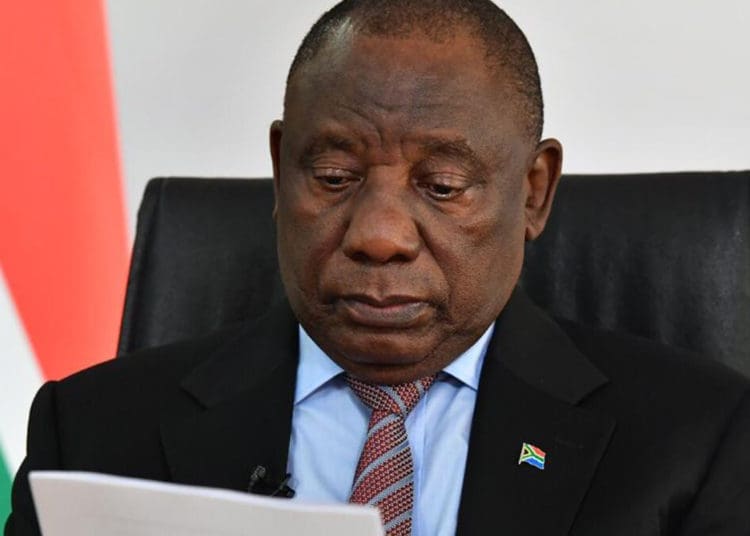Localisation and re-industrialisation are two of the main policy goals South Africa must pursue to grow the economy and create jobs, and President Cyril Ramaphosa came out to bat for both at this year’s three-day Proudly South African Buy Local Summit & Expo.
But the panel discussions at the summit following Ramaphosa’s keynote speech would have had a sobering effect on the president’s mood, as many panelists reminded him of the state’s and the economy’s shortcomings.
This year’s meeting was crucial and had more urgent issues to discuss, given that it took place with the background of a global pandemic and a lockdown from which the economy is yet to recover. As a result, for the first time in its 20-year history, the president addressed the summit virtually.
One of the main questions dogging the deliberations was how South Africa can increase local production and boost exports, during a period when global trade and exports are on the decline.
“Given the global economic climate, we can anticipate decreased demand for our goods, products and services even from our traditional export markets,” Ramaphosa warned.
Creating local demand for the country’s manufactured goods would be a good way to offset a decline of exports, hence the importance of the Buy Local campaign, the president told his audience.
“It is not enough to preach the ‘buy local’ message. We need to practice it. As government, as state-owned enterprises, as businesses, as individuals and as leaders, we need to set an example.”
This included showing that buying local was about investing in quality, in sustaining local businesses and keeping jobs at home.
But South Africa’s recent economic performance suggests ‘localisation’ (both of production and markets) is no easy solution. The economy contracted by 7% in 2020 following months of lockdown restrictions, and unemployment has climbed to 32%.
Some panellists such as economist Thabi Leoka were keen to remind Ramaphosa of this, and other realities that keep South Africa from its stated goals.
Leoka criticised the government’s lack of support on localisation, and also accused it of dragging its feet on the re-industrialisation of the manufacturing sector.
“There are always talks about small businesses and the informal economy all the time, and how they need to be supported as well, and it’s all good and well to support localisation, but where is the support for it?” she asked.
“We need regulations and an environment that are conducive to re-industrialisation, and there has to be a collaboration between labour, the private sector and the government in order for us to industrialise, and sometimes there is an antagonistic relationship between these three parties.”
Dr Stavros Nicolaou, who is Aspen Pharmacare Group’s Senior Executive responsible for Strategic Trade Development, said that the manufacturing sector was key for any economy to survive.
“We have seen many examples, particularly in the last 60 years of economics, that have been moribund and uplifted themselves by a singular focus on industrialisation and creating a strong manufacturing platform,” he said.
“The most important challenge is that if you industrialise you create more jobs and businesses grow. We don’t have time. We’re at a tipping point in industrialisation, so let us reindustrialise and allow the economy and employment numbers change,”.
Cosatu president Zingiswa Losi and University of Free State Chancellor Prof. Bonang Mohale said South Africa had everything it needed to be self-sustainable.
But the government had to be more serious about addressing and removing barriers to entry and creating a policy environment that promotes economic growth and equality, they said.
“South Africa needs to believe in itself, and its government needs to support small businesses,” Losi told the summit.
She lambasted the state’s lack of initiative in steering its procurement system in the right direction.
“We have always been calling for government to play a role in establishing a single online transparent public procurement system that will cover departments, state-owned enterprises and municipalities,” the Cosatu president said.
She accused the state of lacking the political will to punt what had already been agreed on and ensure that it was implemented and monitored.
Mohale agreed.
“When we have addressed the structural inequalities and removed barriers to trade, we will have the opportunity to create businesses in order to hire our own children. South Africa needs to do itself for itself, because nobody else will come from outside to help us,” he said.































































